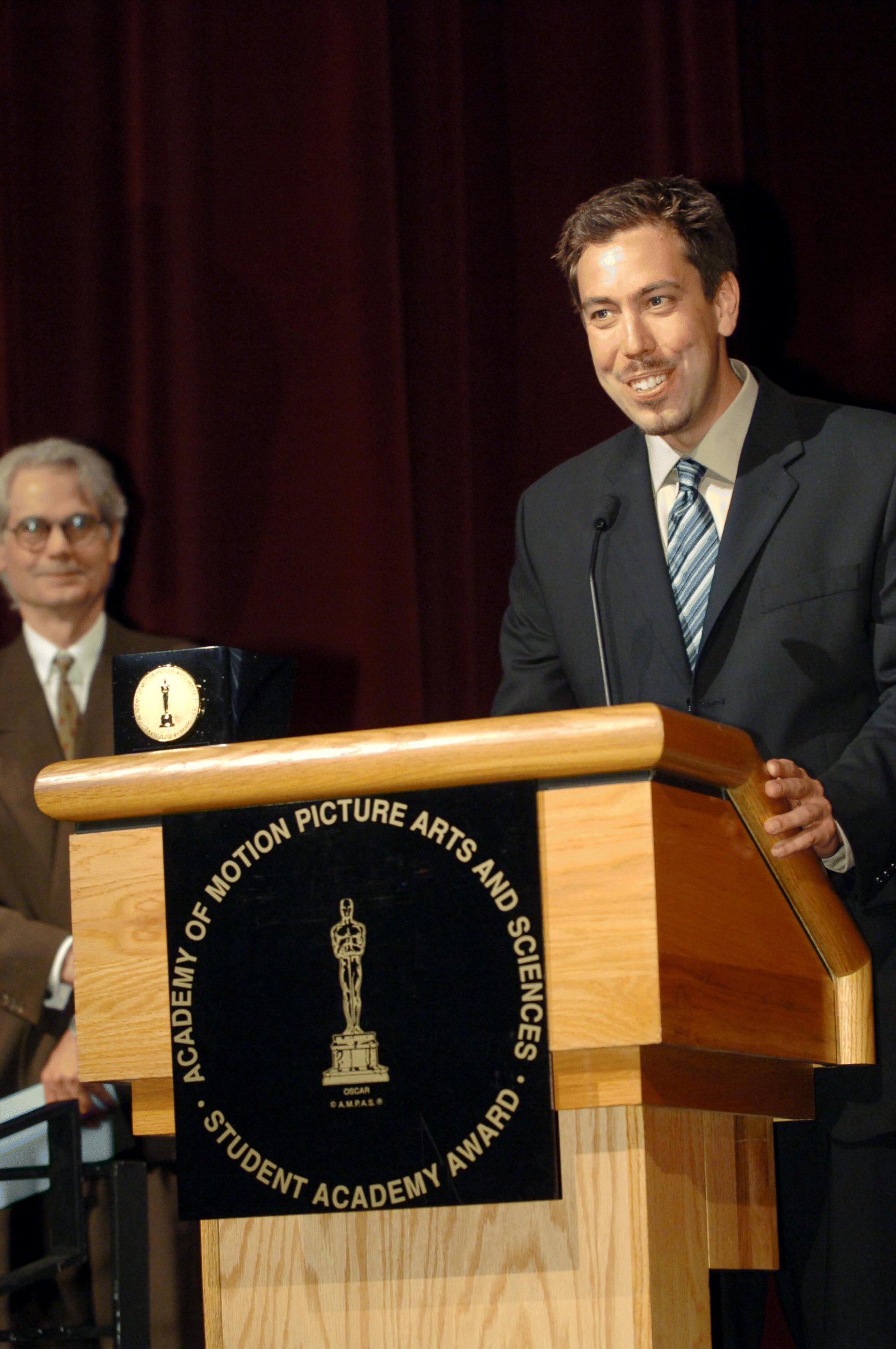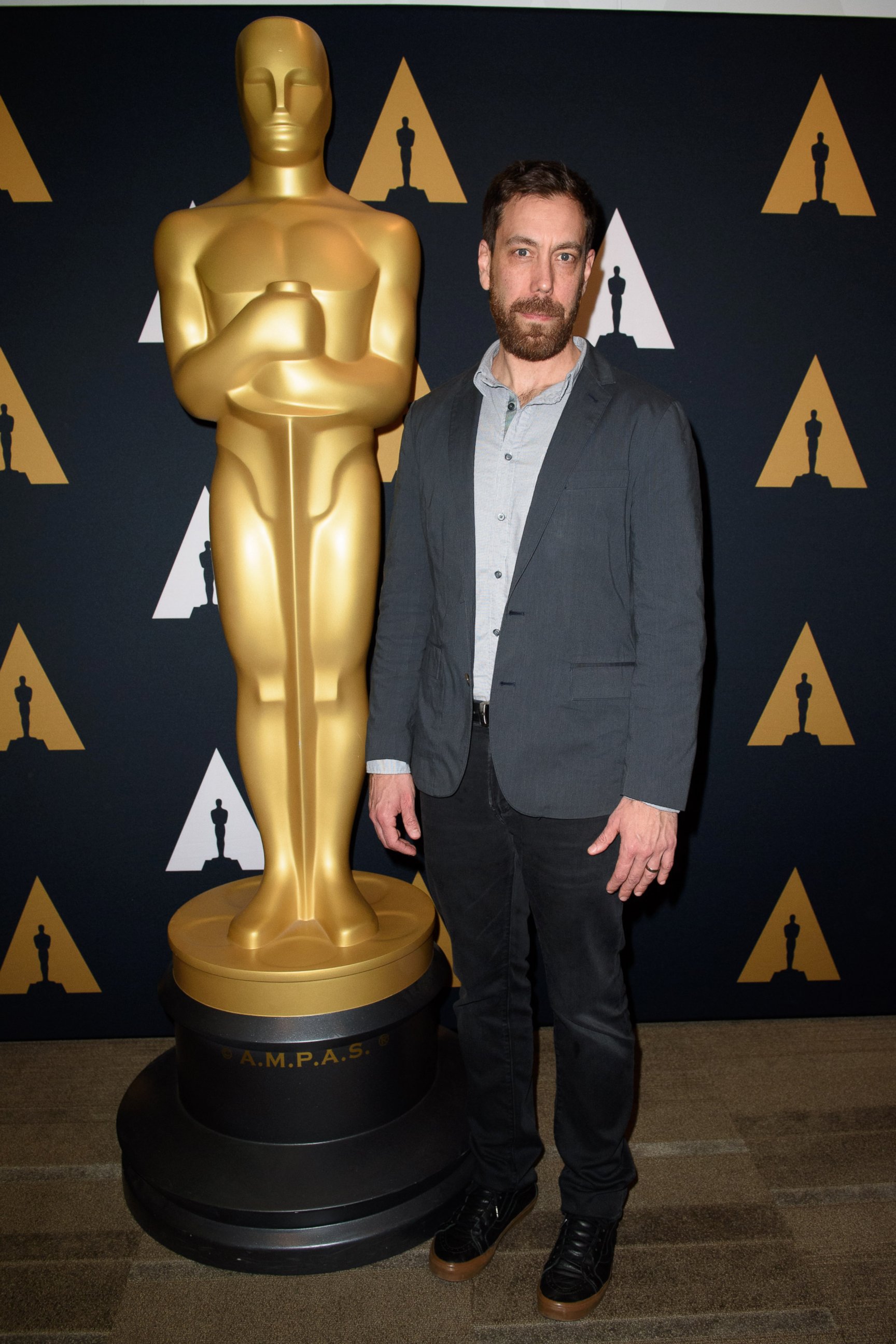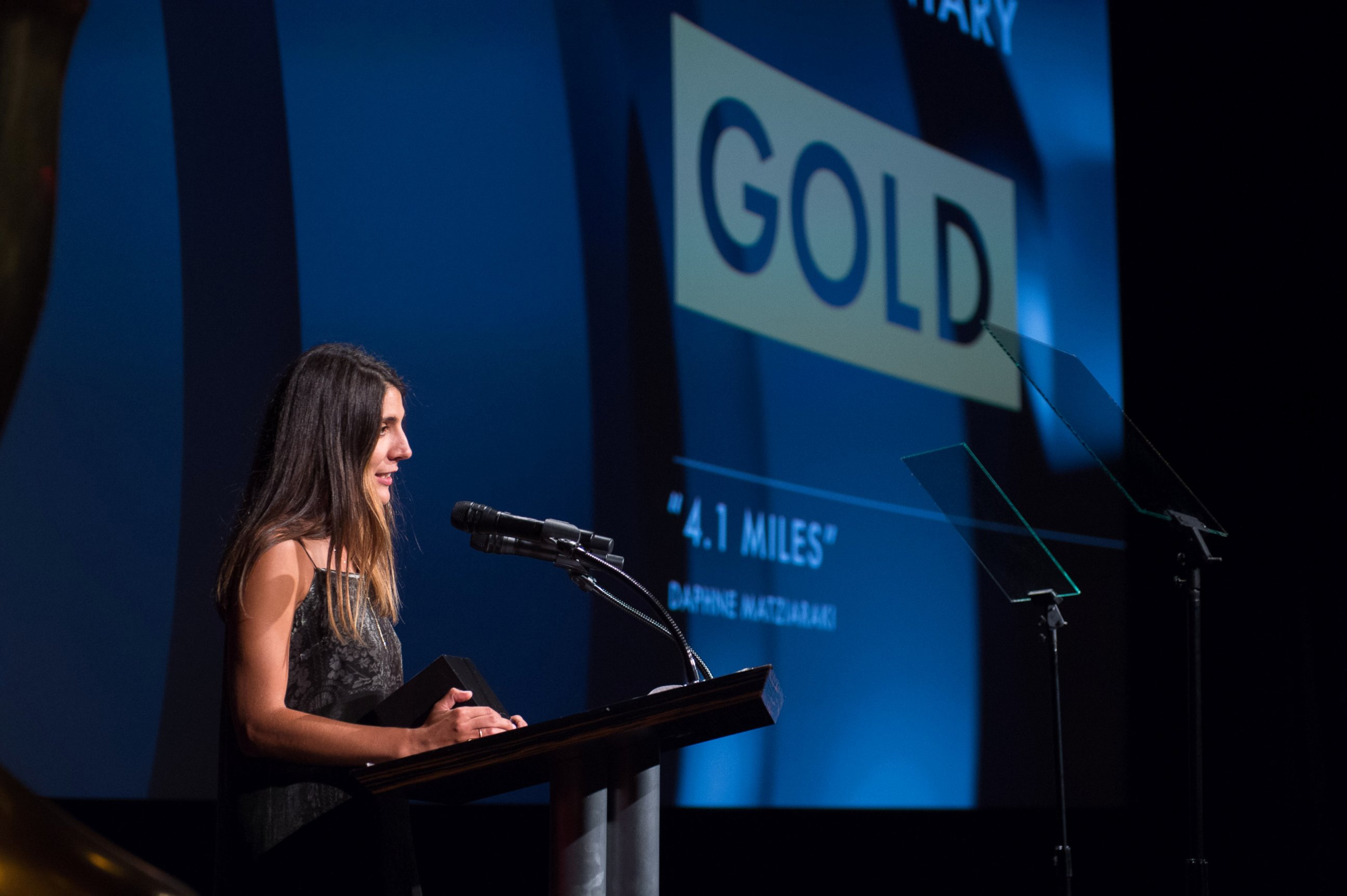How the Student Academy Awards opens doors to the film industry club
Two of this year's Oscar nominees have won Student Academy Awards.
— -- The Academy Awards may be the pinnacle of accomplishment, the crowning achievement for some filmmakers' finished products.
But for many rising creators in the film industry, the first stop in putting their work to the test comes from a different competition, outside the usual film festival and Oscars circuit.
The Student Academy Awards are "a part of the pipeline for burgeoning filmmakers," according to Student Academy Award winner and now Oscar nominee Dan Krauss.
The program, sponsored by The Academy of Motion Picture Arts and Sciences, gives student filmmakers a chance to showcase their work. If they meet eligibility criteria listed on the Academy's website, students can submit films in four categories: animation, documentary, narrative and alternative. The films are judged by members of the Academy who select those to award with gold, silver and bronze medals.
In 2005, Krauss won a Gold Medal Student Academy Award in the documentary category for his thesis film "The Life of Kevin Carter."

"Every student filmmaker is aware there's a student version of the Oscars," Krauss told ABC News. "If you produce work at school, it's sort of almost automatic to submit your thesis work."
After taking home the gold in the SAA category, Krauss remembers a whirlwind experience that followed.
"They fly you down to Los Angeles and you have a week of getting immersed in the professional film world," he said. "They sort of paraded us around Los Angeles in vans."
"It was fun," Krauss continued. "I remember being really awestruck of the level of talent in that student cohort."
Gregg Helvey, the Student Academy Award Committee chairman, said the number of Student Academy Awards applicants is increasing every year. Last year, 1,749 entries were submitted from 381 schools around the world. One of Helvey's goals is to continue making the application process as easy as possible, especially for students at non-U.S. film schools who want to apply.
"We really want to make it as easy as possible for students to submit their films," Helvey said. "We've been trying to expand our international reach."
"Becoming a filmmaker is no easy feat," Helvey, an Student Academy Award winner who went on to become an Oscar nominee himself in 2010 for his short film "Kavi," told ABC News. "The way I think of it, often, is that it's like a war of attrition. Our hope is that this award lets these filmmakers know that they're doing something right and we want to see more of their work and we want to support their diverse voices."

In addition to professional reassurance and networking opportunities with industry veterans, the SAAs also provide a route to the official Academy Awards. For the Oscars, students may only submit their films if they win an SAA or if they win at an Academy-qualifying film festival, Helvey said. This is the route that Krauss took following his SAA win.
"The Death of Kevin Carter: Casualty of the Bang Bang Club," as Krauss' film came to be known, focused on the suicide of South African photojournalist Kevin Carter. The short went on to become a nominee for the Academy Award for Documentary Short Subject in 2006 —- something Krauss wasn't expecting.
"I'd have to be out of my mind to have expected that," he said. "The student Oscar was already so far beyond anything that I had anticipated or hoped for the film. The notion of getting to participate in the quote, unquote 'grown-up Oscars' was not even on my radar. It was the furthest thing from my mind."
He said he remembers well the moment he learned about his Oscar nomination. He was with his wife, refreshing the webpage that would soon display a list of nominees. When the page finally loaded to show his film, the two were ecstatic.
"We just screamed. We just jumped and screamed," he said. "I was, what, a year out of grad school? So it was a fulfillment of a surreal fantasy that I had never even articulated in my own mind."

Krauss' film ultimately didn't take home the Oscar that year, but that didn't matter —- the experience was still important to him.
"I had no ambition to have the film nominated for an Oscar," he said. "It was never a goal or even something that felt like it was part of the life until it happened, and then suddenly it was like being strapped onto a titan missile."
Now, Krauss is nominated a second time for an Oscar, this time for his documentary short "Extremis," which is available to stream on Netflix. This year's experience at the Oscars is particularly unique for him, as he is the former professor of another nominee in the same category. Daphne Matziaraki, nominated for her documentary short "4.1 Miles," also won a Student Academy Award for the same piece, which she worked on while studying at Berkeley where Krauss is a lecturer.
"I advised her for her second year (of graduate school)," Krauss said. "I feel incredibly honored to be standing with her. She's made a work of incredible importance with an unflinching eye and with great sensitivity, and I think it deserves every bit of recognition it's getting."

Helvey said the Student Academy Awards are meant to give student filmmakers a pathway to the professional industry.
"Hollywood is often perceived as kind of a club, and we want to open the doors to that and welcome diverse voices and international perspectives in film," he said. "It's absolutely a thing that any student filmmaker should do if they're eligible to submit. Please submit, because we want to see your work, and we're looking for the future of film and future Academy members. I think it all starts with students."




